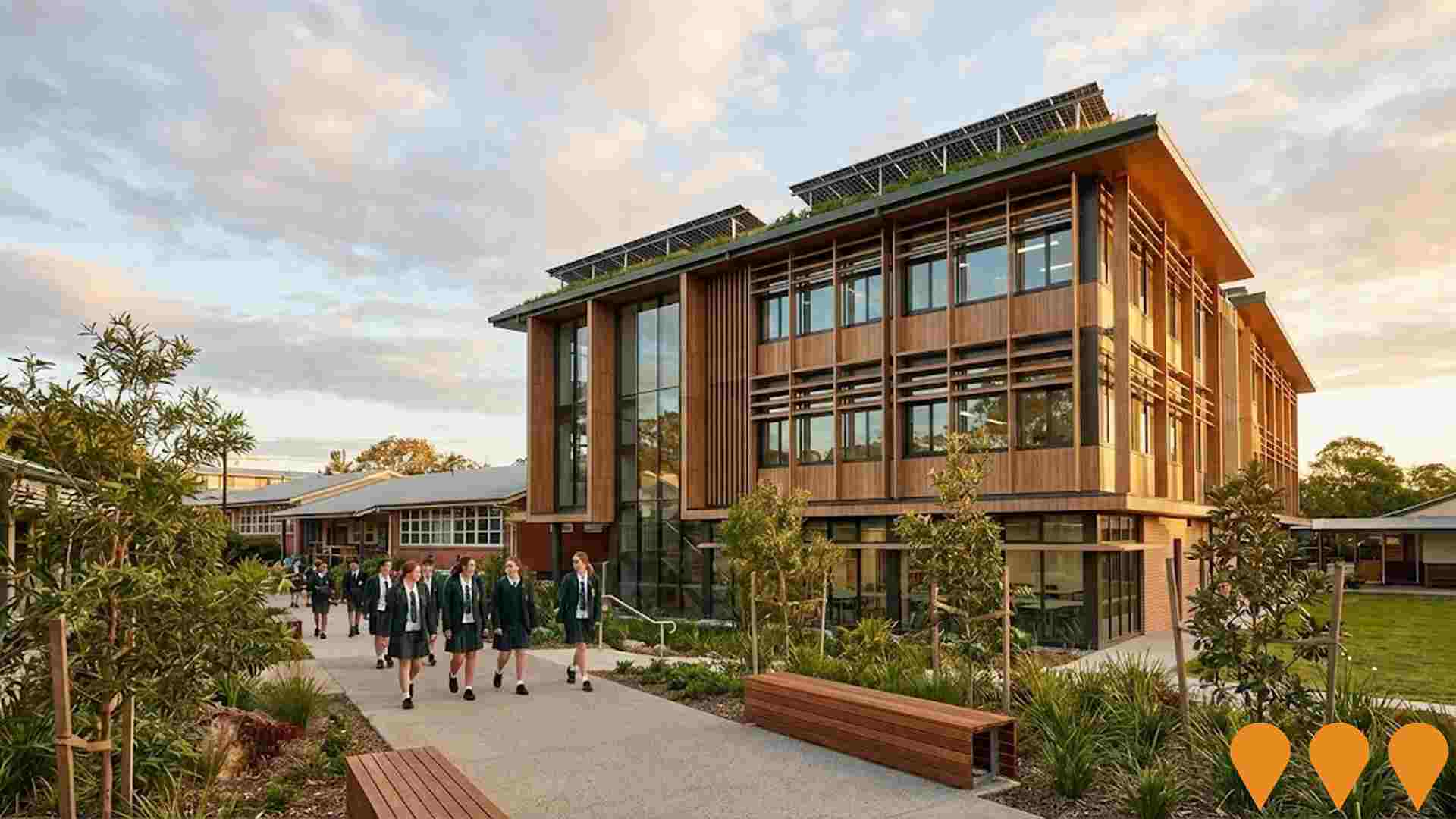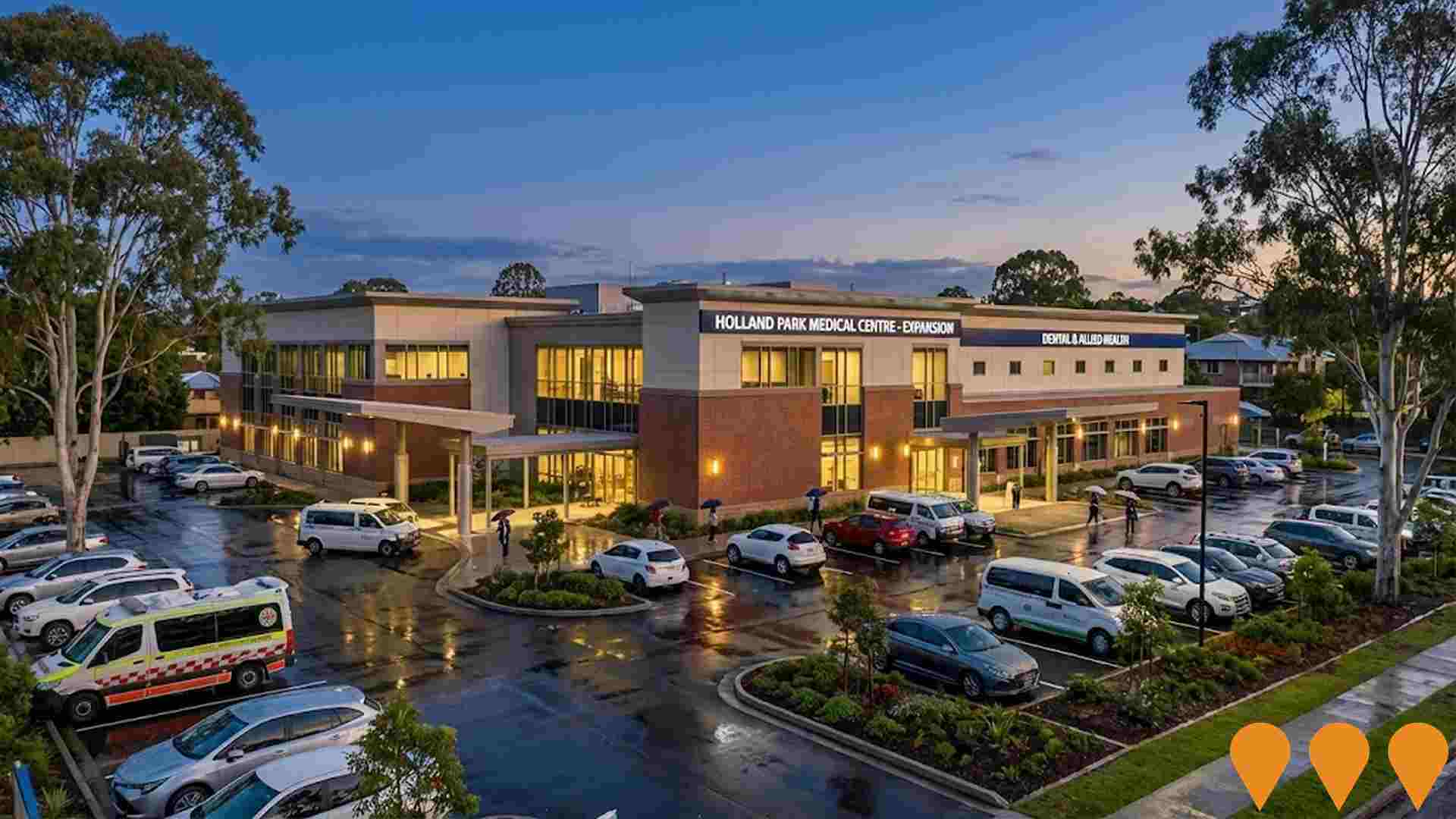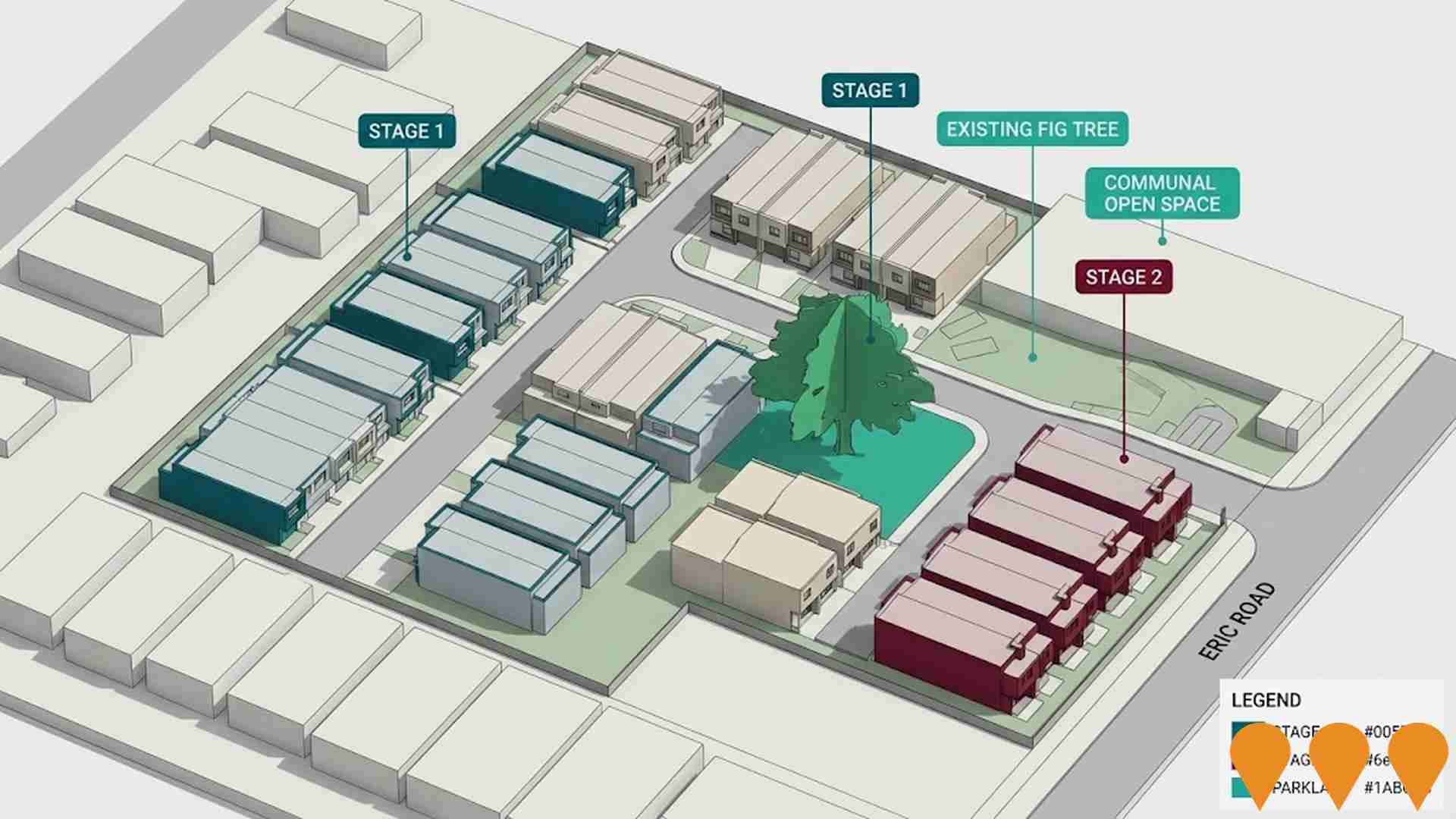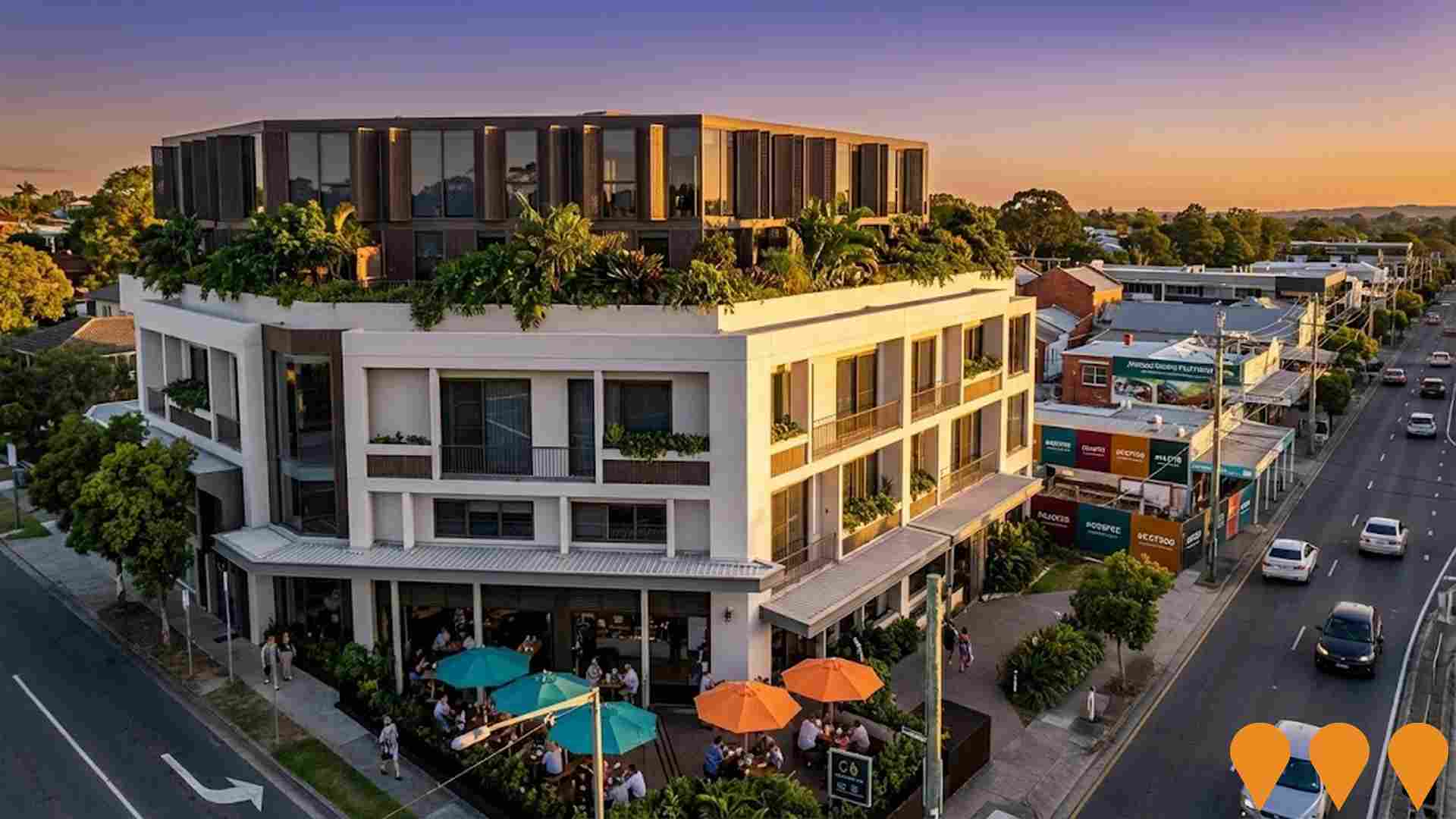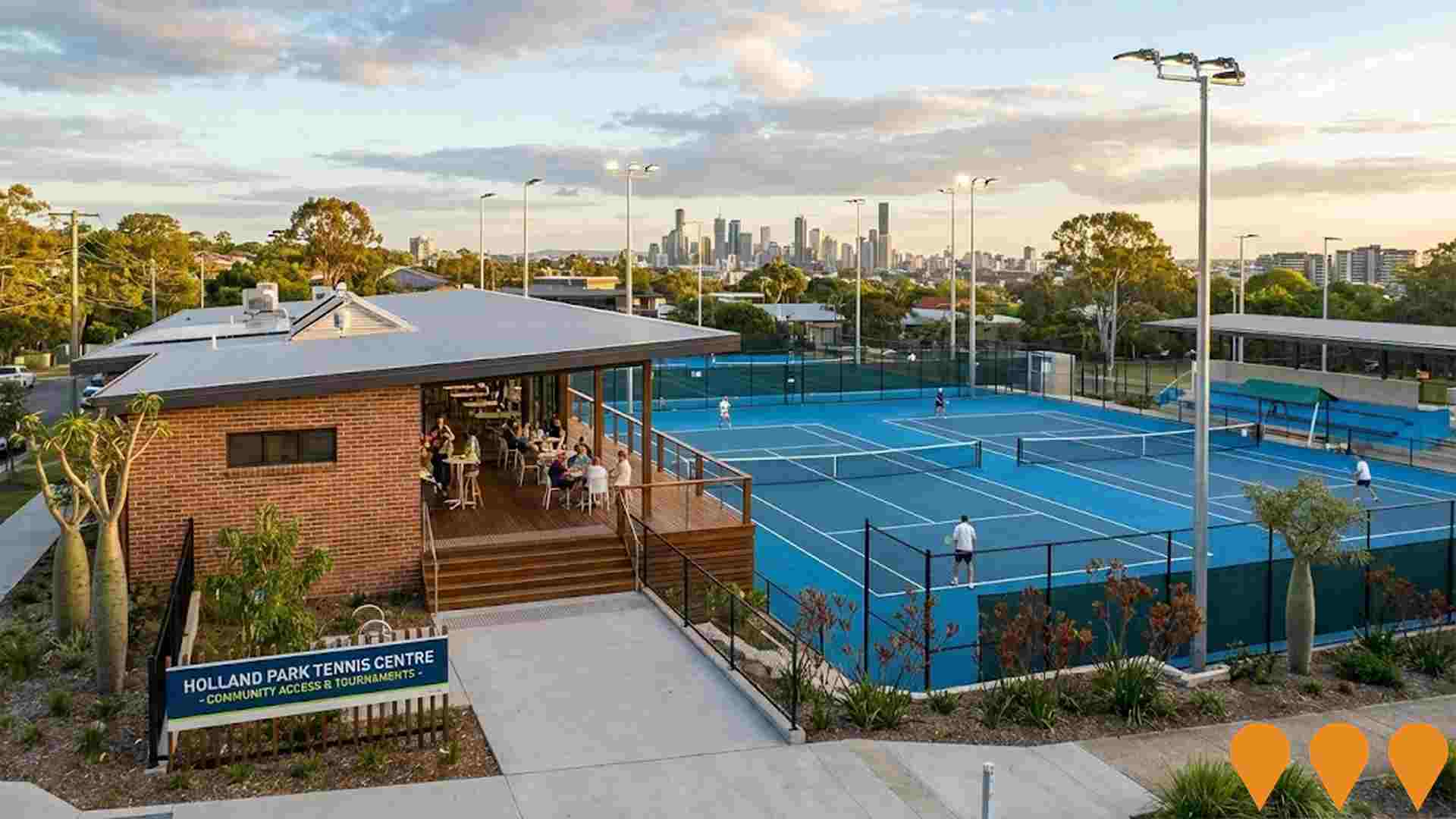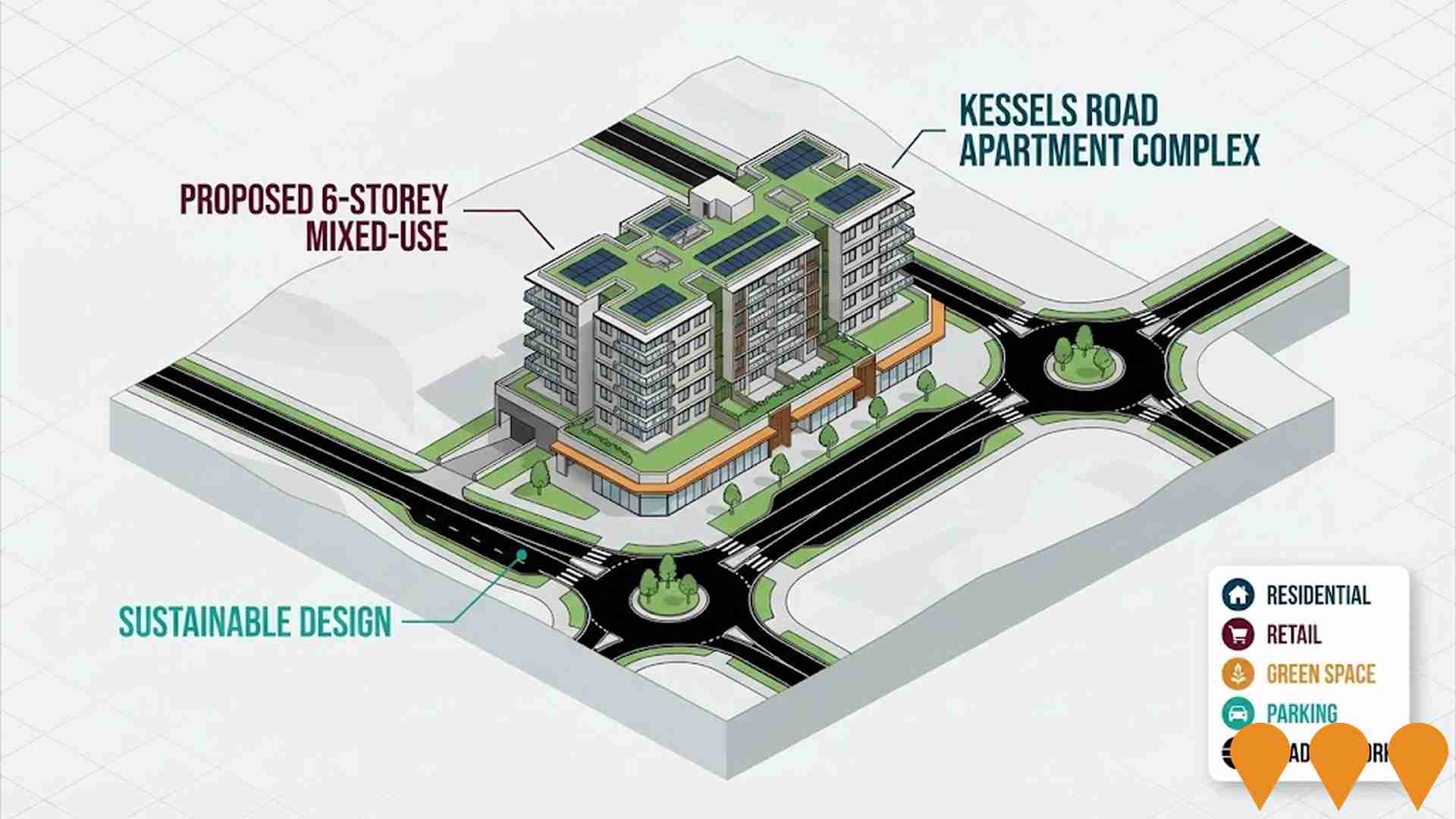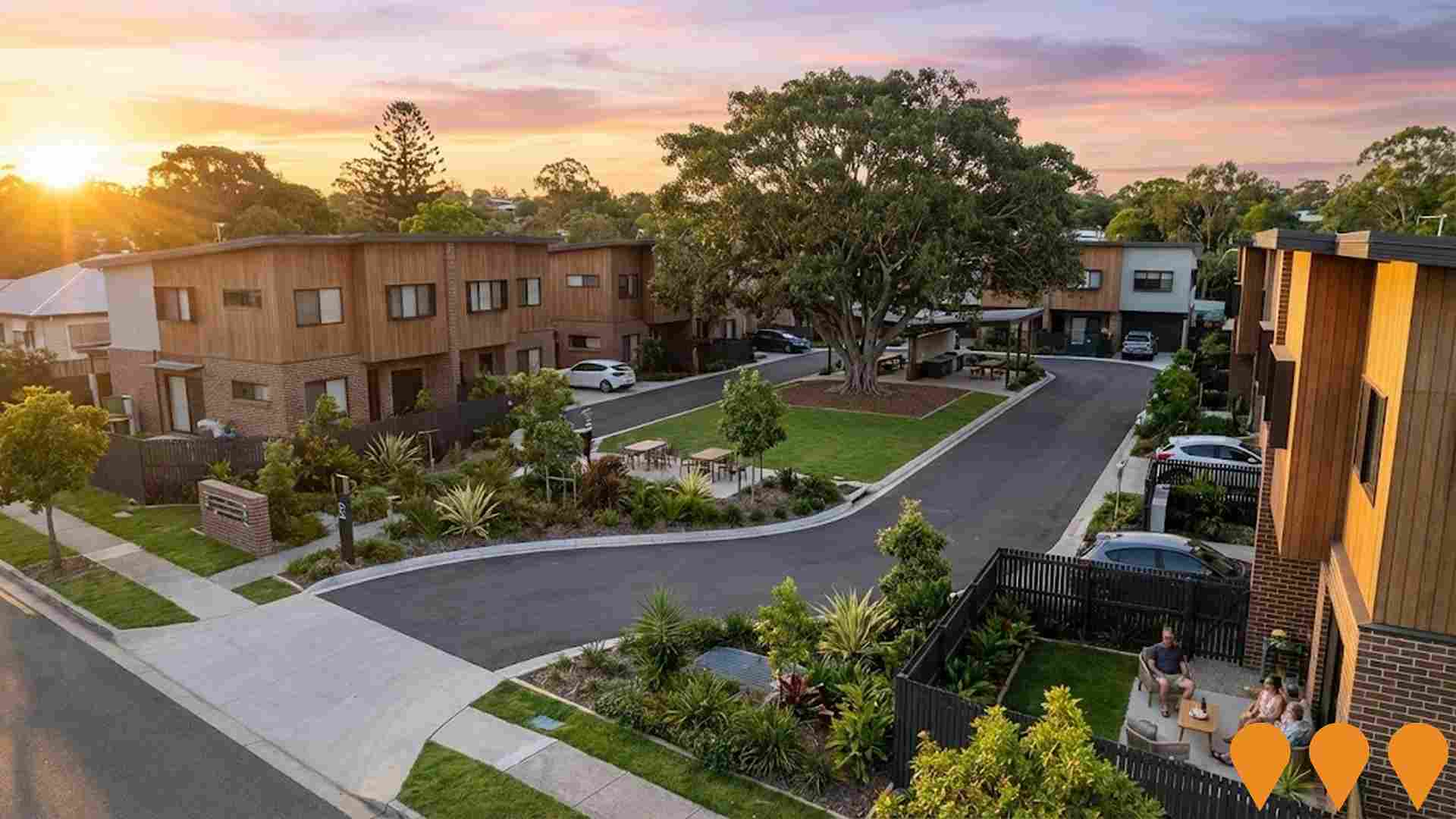Chart Color Schemes
This analysis uses ABS Statistical Areas Level 2 (SA2) boundaries, which can materially differ from Suburbs and Localities (SAL) even when sharing similar names.
SA2 boundaries are defined by the Australian Bureau of Statistics and are designed to represent communities for statistical reporting (e.g., census and ERP).
Suburbs and Localities (SAL) represent commonly-used suburb/locality names (postal-style areas) and may use different geographic boundaries. For comprehensive analysis, consider reviewing both boundary types if available.
est. as @ -- *
ABS ERP | -- people | --
2021 Census | -- people
Sales Activity
Curious about local property values? Filter the chart to assess the volume and appreciation (including resales) trends and regional comparisons, or scroll to the map below view this information at an individual property level.
Find a Recent Sale
Sales Detail
Population
Holland Park has seen population growth performance typically on par with national averages when looking at short and medium term trends
Holland Park's population was approximately 9,291 as of November 2025. This figure represents an increase of 396 people, equivalent to a 4.5% rise since the 2021 Census, which reported a population of 8,895 people. This change is inferred from the estimated resident population of 9,248 in June 2024 and an additional 29 validated new addresses since the Census date. The population density was approximately 2,850 persons per square kilometer, placing Holland Park in the upper quartile relative to national locations assessed by AreaSearch. Overseas migration contributed about 64.5% of overall population gains during recent periods.
AreaSearch uses ABS/Geoscience Australia projections for each SA2 area, released in 2024 with a base year of 2022. For areas not covered and years post-2032, Queensland State Government's SA2 area projections are adopted, released in 2023 based on 2021 data. These state projections do not provide age category splits; thus, AreaSearch applies proportional growth weightings using ABS Greater Capital Region projections for each age cohort, released in 2023 with a base year of 2022. Future population dynamics anticipate lower quartile growth, with the area expected to increase by 342 persons to 2041 based on the latest annual ERP population numbers, reflecting an overall increase of 3.2% over the 17 years.
Frequently Asked Questions - Population
Development
Residential development activity is lower than average in Holland Park according to AreaSearch's national comparison of local real estate markets
Holland Park has recorded approximately 29 residential properties granted approval annually. Over the past five financial years, from FY-21 to FY-25147 homes were approved, with a further 24 approved in FY-26 so far. On average, 1.5 people have moved to the area each year for every dwelling built over these five financial years.
This balance between supply and demand supports stable market conditions. The average expected construction cost value of new homes is $617,000, indicating a focus on the premium segment with upmarket properties. In FY-26, there have been $5.7 million in commercial approvals, reflecting the area's residential character. Compared to Greater Brisbane, Holland Park has significantly less development activity, at 54.0% below the regional average per person. This limited new supply generally supports stronger demand and values for established homes.
Nationally, development activity is also lower, suggesting market maturity and possible development constraints. New development consists of 92.0% detached houses and 8.0% townhouses or apartments, maintaining Holland Park's traditional suburban character focused on family homes. With around 378 people per dwelling approval, the area shows a developed market. According to the latest AreaSearch quarterly estimate, Holland Park is expected to grow by 298 residents through to 2041. Current construction levels suggest that housing supply should adequately meet demand, creating favourable conditions for buyers while potentially enabling growth that exceeds current forecasts.
Frequently Asked Questions - Development
Infrastructure
Holland Park has very high levels of nearby infrastructure activity, ranking in the top 20% nationally
Changes to local infrastructure significantly influence an area's performance. AreaSearch has identified 29 projects likely to impact the area. Key projects include Nursery Road Mixed-Use Development, Warrigal Road Mixed-Use Development, Holland Park Heritage Precinct, and Kessels Road Apartment Complex. The following list details those most relevant.
Professional plan users can use the search below to filter and access additional projects.
INFRASTRUCTURE SEARCH
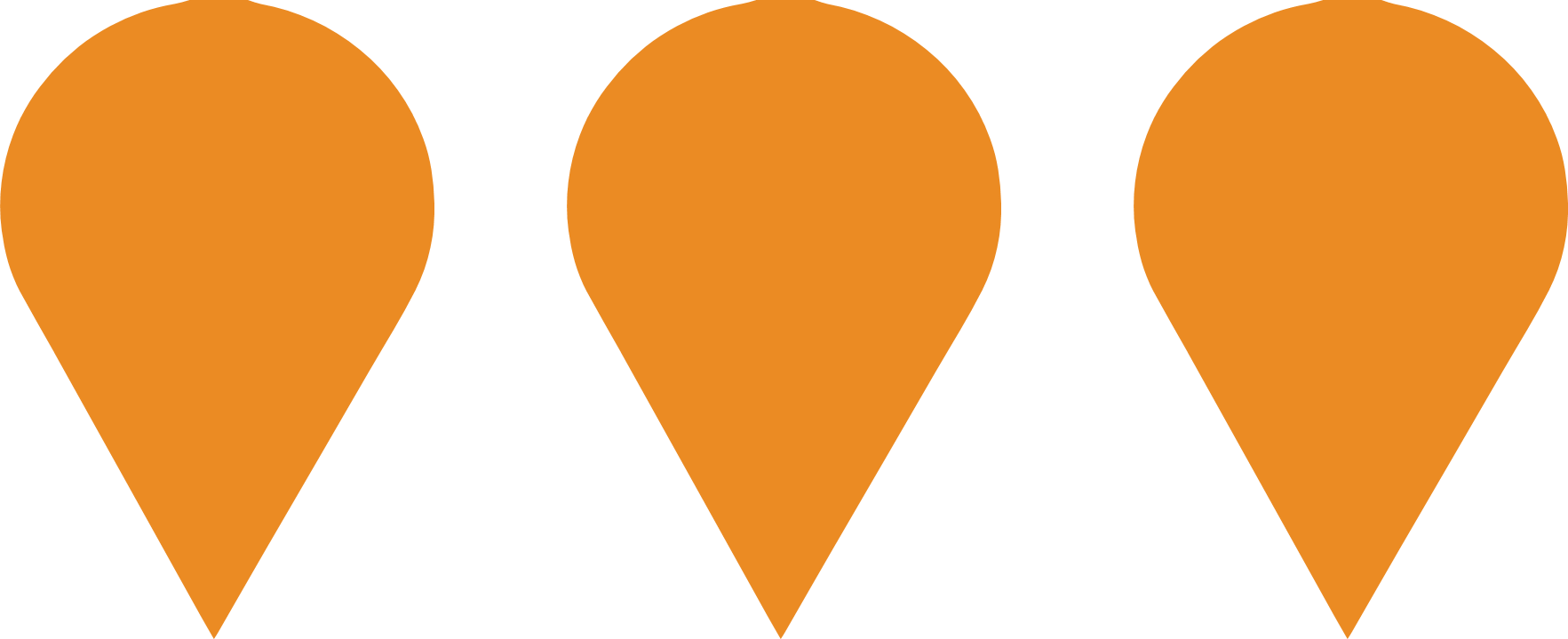 Denotes AI-based impression for illustrative purposes only, not to be taken as definitive under any circumstances. Please follow links and conduct other investigations from the project's source for actual imagery. Developers and project owners wishing us to use original imagery please Contact Us and we will do so.
Denotes AI-based impression for illustrative purposes only, not to be taken as definitive under any circumstances. Please follow links and conduct other investigations from the project's source for actual imagery. Developers and project owners wishing us to use original imagery please Contact Us and we will do so.
Frequently Asked Questions - Infrastructure
Greenslopes Private Hospital Master Plan Redevelopment
Long term multi stage campus wide redevelopment of Greenslopes Private Hospital, Ramsay Health Care's flagship tertiary teaching hospital in Brisbane. The master plan program includes a new clinical services and infill building, additional operating theatres, expanded intensive care and day surgery capacity, refurbished emergency department and new inpatient wards, delivered through a series of major expansion projects including the recently completed $70m plus infill and theatre expansion stages.
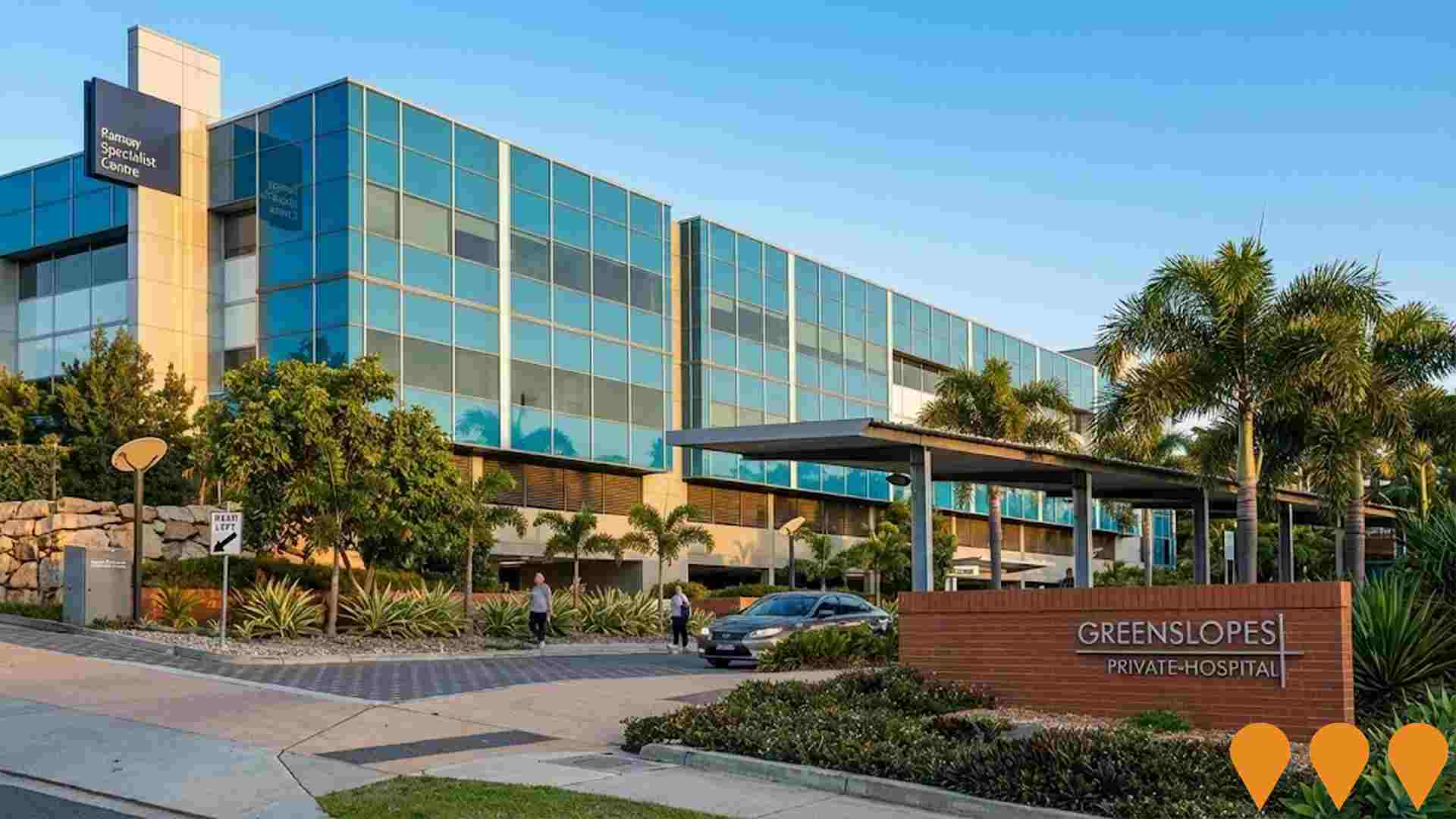
Greenslopes Mall Expansion and Refurbishment
Major program to refurbish and modernise Greenslopes Mall and to better connect it with new development around Logan Road and Plimsoll Street. The inner city centre currently provides around 9,600sqm of retail floorspace anchored by Coles and a mix of convenience and service tenants, including medical, pharmacy and food outlets, on a full block site bounded by Lottie Street, Sackville Street, Plimsoll Street and Logan Road. The centre forms the heart of the Greenslopes Mall district centre and is expected to be upgraded in stages alongside adjoining mixed use projects such as the proposed six storey health, office and gym building at 730 742 Logan Road and a childcare centre above the mall, with works aimed at improving the retail mix, internal layouts, public realm, parking access and pedestrian links to surrounding residential streets. [sources: original project record :contentReference[oaicite:0]{index=0}; category and subcategory mapping :contentReference[oaicite:1]{index=1}]
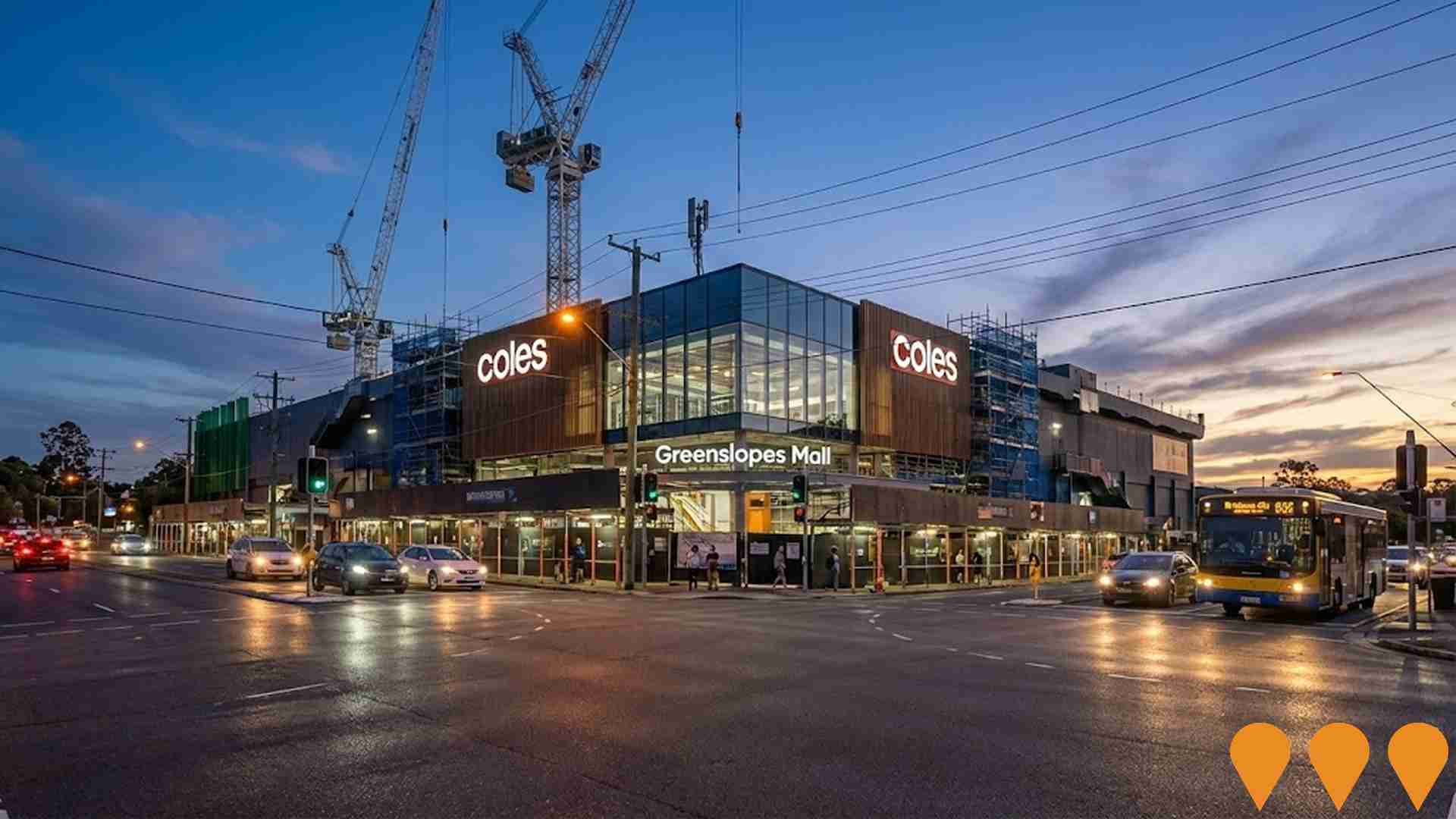
Holland Park Heritage Precinct
Council-supported heritage initiative focused on protecting and interpreting local heritage places around Holland Park through wayfinding, interpretive content and walking-trail style improvements. Aligns with Brisbane City Council heritage trails program for Coorparoo and Holland Park and leverages existing listed sites (e.g., Catt's House, Holland Park State School).
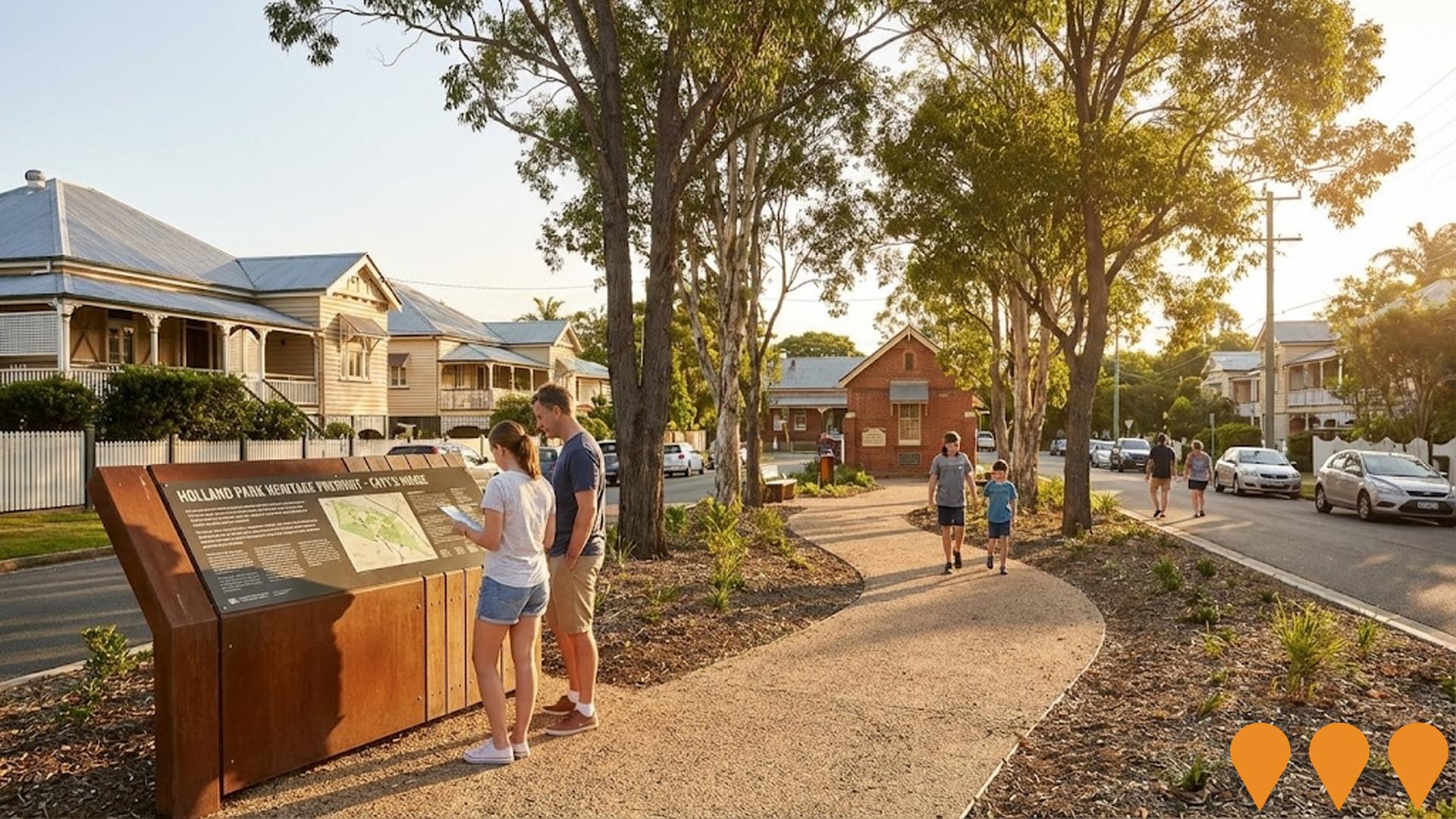
Nursery Road Mixed-Use Development
A six storey mixed use development at 50-66 Nursery Road comprising 72 residential apartments over a childcare facility, approved by Brisbane City Council in 2023 and currently under construction.
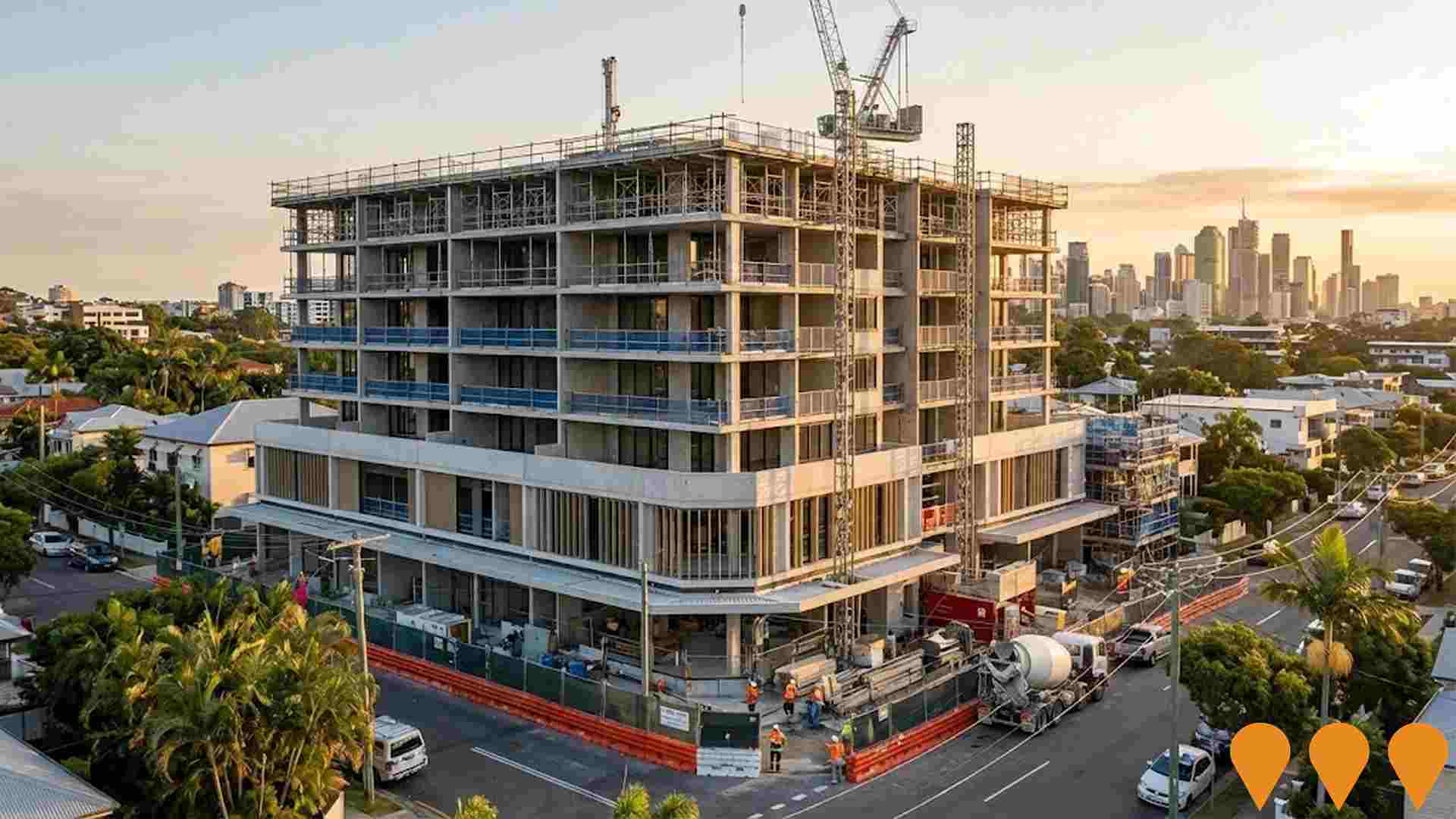
1008 Logan Road Redevelopment (Childcare + Townhouses)
Mixed-use redevelopment at 1008 Logan Road. Council records show successive Material Change of Use, building work and plan sealing actions since 2022 with compliance assessments in 2025. A childcare centre is underway on site with subdivision/lot reconfiguration completed, and associated residential townhouses expected as later stages.
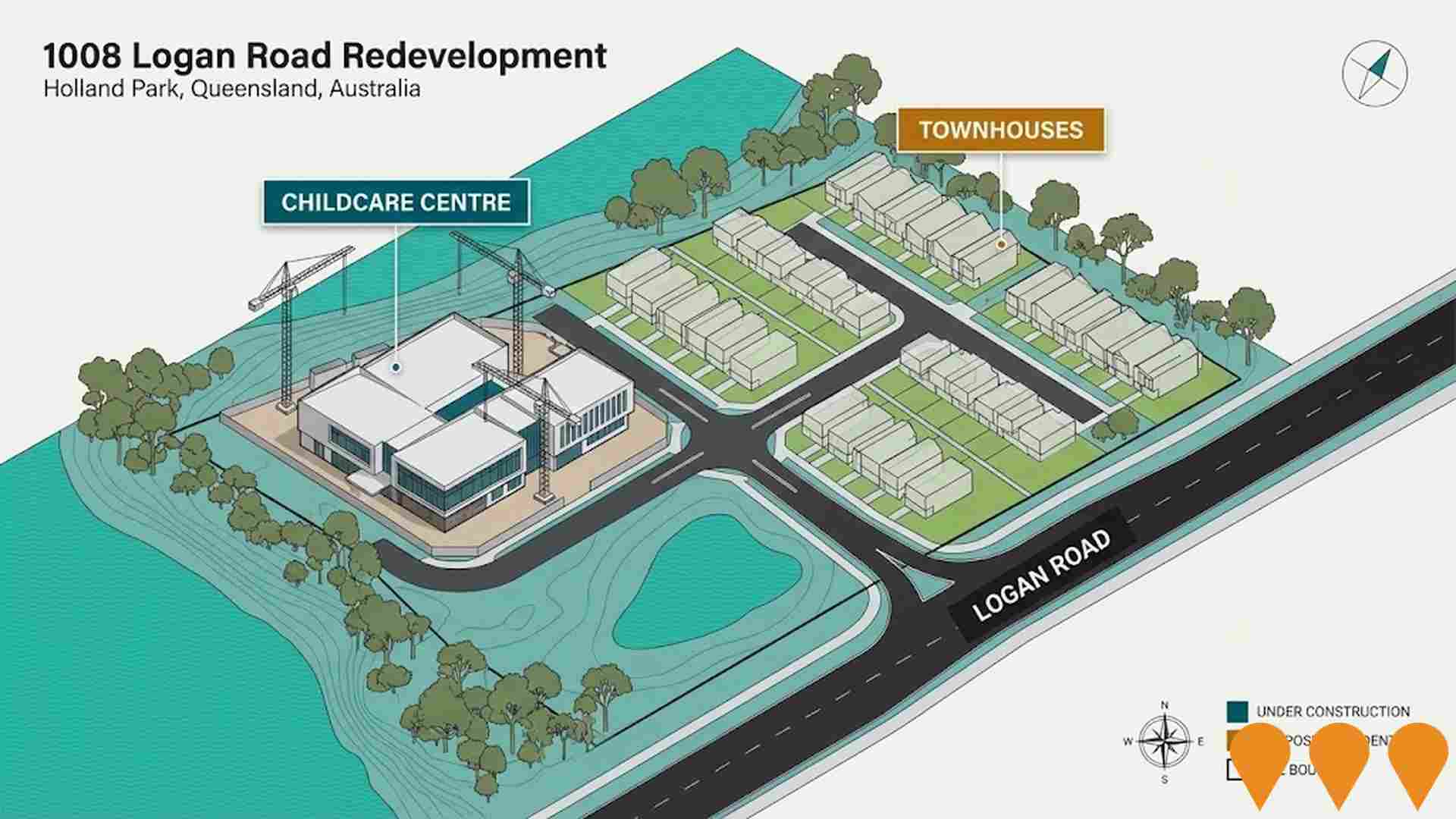
Holland Park State School Upgrade
Comprehensive upgrade to Holland Park State School including new classrooms, administration building, and sporting facilities. The project will modernize the school's infrastructure to accommodate growing student numbers.
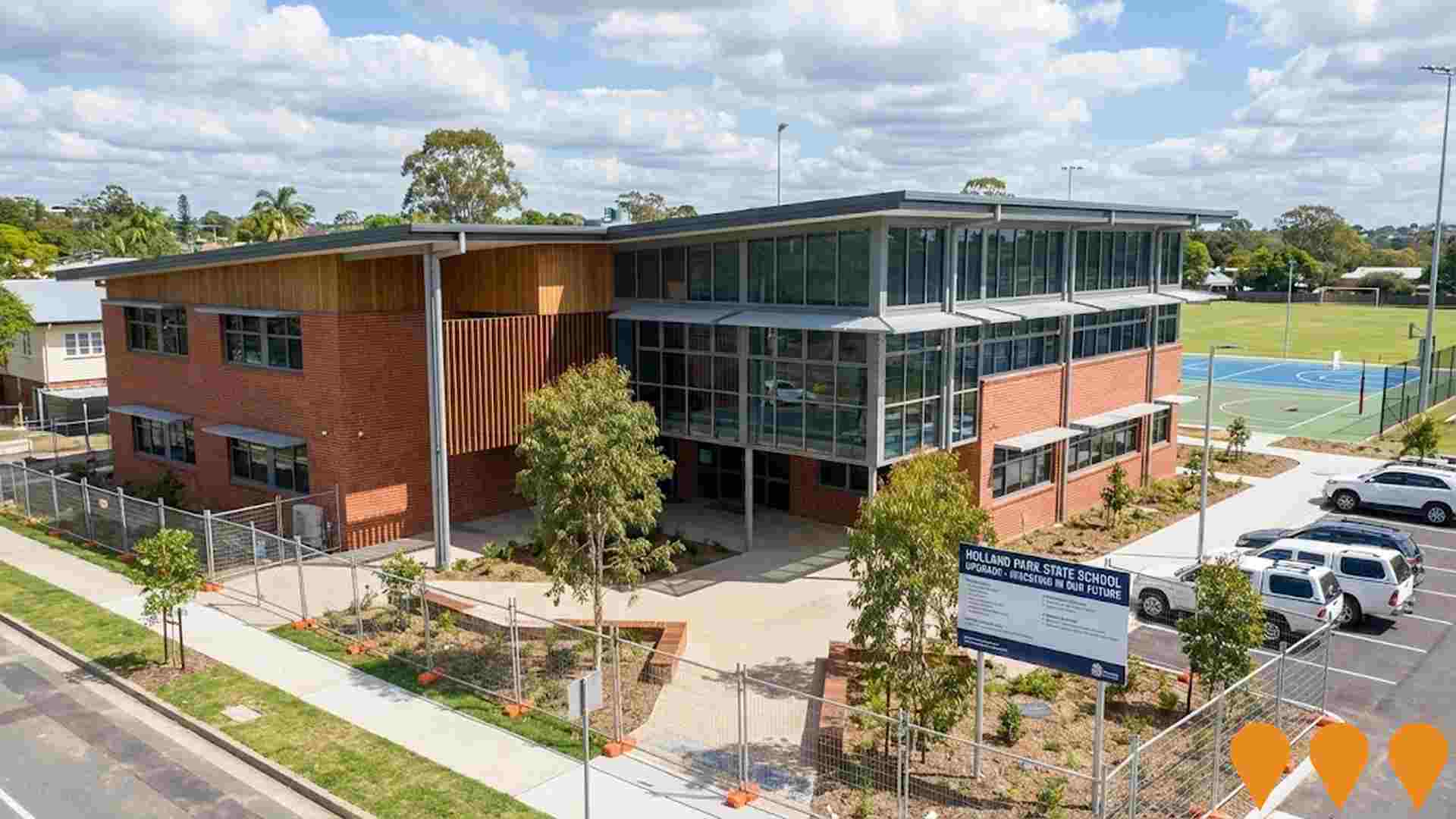
Holland Park Shopping Centre Expansion
Major expansion of Holland Park Shopping Centre including new retail spaces, dining precinct, and underground parking. The development will add 50 new stores and modernize existing facilities.
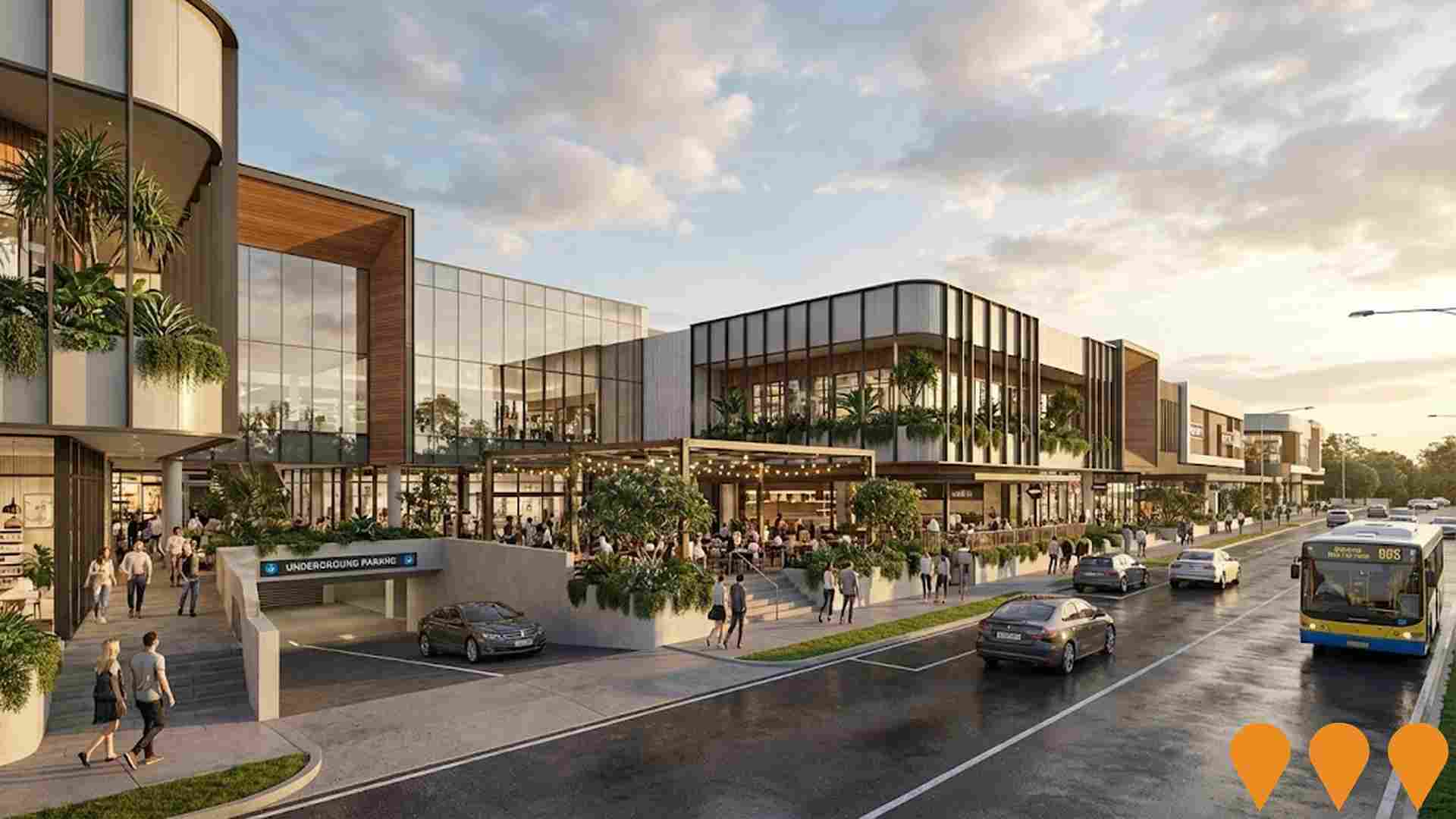
Holland Park Busway Station Upgrade
Upgrade of Holland Park Busway Station including platform extensions, improved passenger facilities, and accessibility enhancements. The project will increase capacity and improve passenger experience.
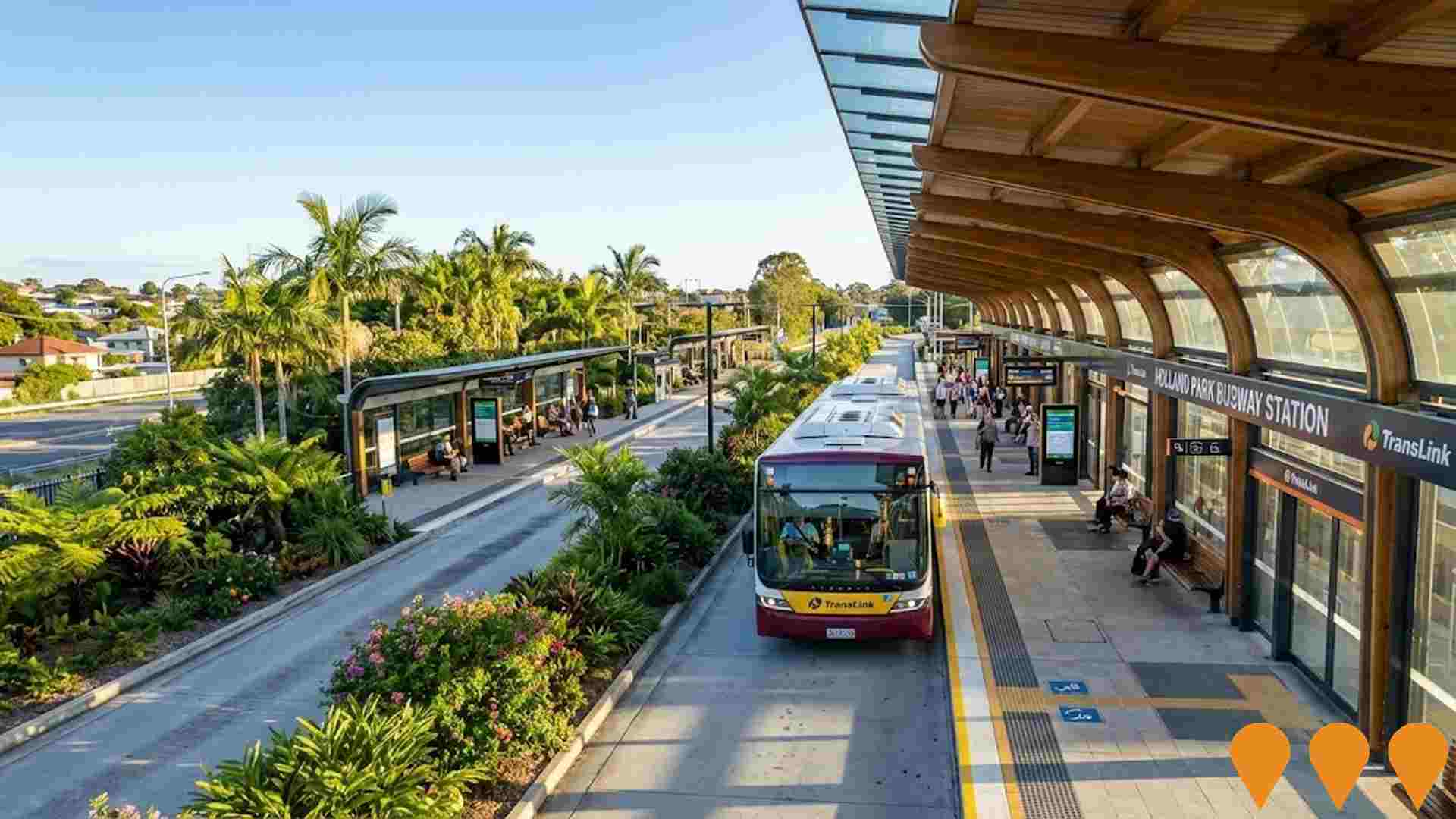
Employment
Employment performance in Holland Park has been broadly consistent with national averages
Holland Park has an educated workforce with professional services well represented. Its unemployment rate is 4.1%, showing stability over the past year.
As of September 2025, 5,180 residents are employed, matching Greater Brisbane's 4.0% unemployment rate and a participation rate of 69.2%. Key industries include health care & social assistance, education & training, and professional & technical services, with the latter having an employment share 1.3 times the regional level. Transport, postal & warehousing employs just 3.4%, below Greater Brisbane's 5.6%. From September 2024 to September 2025, employment levels increased by 0.1% and labour force by 0.4%, raising unemployment by 0.3 percentage points.
In contrast, Greater Brisbane saw employment growth of 3.8% and labour force growth of 3.3%, with a 0.5 percentage point drop in unemployment. By November 25, Queensland's employment contracted by 0.01% (losing 1,210 jobs), with the state unemployment rate at 4.2%, closely aligning with the national rate of 4.3%. National employment forecasts from May-25 project a 6.6% increase over five years and 13.7% over ten years. Applying these projections to Holland Park's employment mix suggests local employment should grow by 7.1% over five years and 14.5% over ten years, though this is an illustrative extrapolation not accounting for localised population projections.
Frequently Asked Questions - Employment
Income
The economic profile demonstrates exceptional strength, placing the area among the top 10% nationally based on comprehensive AreaSearch income analysis
The Holland Park SA2 had one of Australia's highest income levels according to AreaSearch's aggregation of latest ATO data for financial year 2022. Its median taxpayer income was $67,385 and average income stood at $89,743, compared to Greater Brisbane's figures of $55,645 and $70,520 respectively. Based on a 13.99% increase from the Wage Price Index since financial year 2022, estimated incomes for September 2025 would be approximately $76,812 (median) and $102,298 (average). The 2021 Census placed Holland Park's household, family, and personal incomes between the 81st and 84th percentiles nationally. Income brackets showed that 27.0% of residents (2,508 people) fell within the $1,500 - $2,999 bracket, mirroring the surrounding region's 33.3%. Higher earners made up a substantial presence with 39.6% exceeding $3,000 weekly. High housing costs consumed 15.4% of income, but strong earnings placed disposable income at the 84th percentile. The area's SEIFA income ranking placed it in the 8th decile.
Frequently Asked Questions - Income
Housing
Holland Park is characterized by a predominantly suburban housing profile, with above-average rates of outright home ownership
The latest Census evaluation found that Holland Park's dwelling structure comprised 81.6% houses and 18.5% other dwellings (semi-detached, apartments, 'other' dwellings), compared to Brisbane metro's 47.7% houses and 52.3% other dwellings. Home ownership in Holland Park was at 23.1%, with mortgaged dwellings at 41.2% and rented ones at 35.7%. The median monthly mortgage repayment in the area was $2,300, while the median weekly rent figure was recorded at $395. Nationally, Holland Park's mortgage repayments are significantly higher than the Australian average of $1,863, and rents exceed the national figure of $375.
Frequently Asked Questions - Housing
Household Composition
Holland Park features high concentrations of group households, with a higher-than-average median household size
Family households account for 72.6% of all households, including 37.5% couples with children, 21.3% couples without children, and 12.4% single parent families. Non-family households make up the remaining 27.4%, with lone person households at 22.9% and group households comprising 4.4% of the total. The median household size is 2.7 people, which is larger than the Greater Brisbane average of 2.3.
Frequently Asked Questions - Households
Local Schools & Education
Holland Park shows strong educational performance, ranking in the upper quartile nationally when assessed across multiple qualification and achievement indicators
Educational attainment in Holland Park is notably high, with 44.7% of residents aged 15 and over holding university qualifications. This compares to 25.7% in Queensland (QLD) and 30.4% nationally. Bachelor degrees are the most common at 29.6%, followed by postgraduate qualifications at 10.3% and graduate diplomas at 4.8%. Vocational credentials are also prevalent, with 25.6% of residents aged 15 and over holding such qualifications - advanced diplomas at 9.9% and certificates at 15.7%.
Educational participation is high, with 33.1% of residents currently enrolled in formal education. This includes 10.8% in primary education, 10.0% in secondary education, and 7.2% pursuing tertiary education.
Frequently Asked Questions - Education
Schools Detail
Nearby Services & Amenities
Transport
Transport servicing is good compared to other areas nationally based on assessment of service frequency, route connectivity and accessibility
Holland Park has 49 active public transport stops, all of which are bus stops. These stops are served by 14 different routes that together facilitate 1,719 weekly passenger trips. The park's transport accessibility is rated as excellent, with residents on average located just 178 meters from the nearest stop.
On a daily basis, there are an average of 245 trips across all routes, which equates to about 35 weekly trips per individual stop.
Frequently Asked Questions - Transport
Transport Stops Detail
Health
Holland Park's residents are healthier than average in comparison to broader Australia with prevalence of common health conditions quite low among the general population though higher than the nation's average across older, at risk cohorts
Holland Park's health data shows positive outcomes for residents. Common health conditions are relatively low but higher among older, at-risk cohorts compared to national averages. Private health cover is exceptionally high at 67% of the total population (6,197 people), compared to Greater Brisbane's 61.3% and the national average of 55.3%.
Mental health issues and asthma are the most common conditions, affecting 9.2% and 7.8% respectively. 71.8% of residents report no medical ailments, similar to Greater Brisbane. The area has 12.7% seniors (1,177 people), with some health challenges requiring more attention than the broader population.
Frequently Asked Questions - Health
Cultural Diversity
In terms of cultural diversity, Holland Park records figures broadly comparable to the national average, as found in AreaSearch's assessment of a number of language and cultural background related metrics
Holland Park's cultural diversity was above average, with 21.5% of residents born overseas and 14.7% speaking a language other than English at home. Christianity was the predominant religion in Holland Park, accounting for 49.2%. However, Judaism was overrepresented compared to Greater Brisbane, making up 0.2% vs 0.2%.
The top three ancestry groups were English (25.7%), Australian (24.3%), and Irish (10.7%). Notably, New Zealanders were overrepresented at 1.1%, Koreans had similar representation at 0.6%, and Russians were slightly underrepresented at 0.4%.
Frequently Asked Questions - Diversity
Age
Holland Park's population is slightly younger than the national pattern
Holland Park's median age is nearly 37 years, closely matching Greater Brisbane's average of 36 and slightly below Australia's median of 38. Compared to Greater Brisbane, Holland Park has a higher percentage of residents aged 45-54 (15.5%) but fewer residents aged 25-34 (11.8%). Between the 2021 Census and now, the proportion of residents aged 15-24 has increased from 12.8% to 14.9%, while the proportion of residents aged 5-14 has decreased from 14.9% to 13.7%. By 2041, demographic modeling suggests Holland Park's age profile will significantly change. The cohort aged 85 and above is projected to grow by 97%, adding 208 residents to reach a total of 422. Residents aged 65 and above are expected to drive 61% of population growth, highlighting demographic aging trends. Conversely, the cohorts aged 15-24 and 0-4 are projected to experience population declines.
